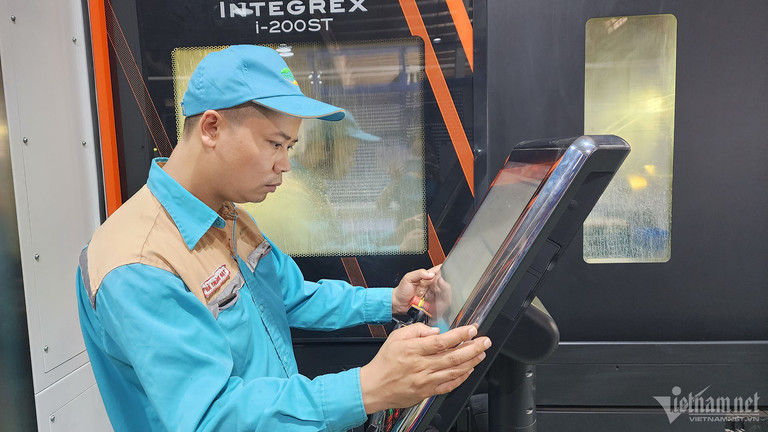
According to VASI, the number of orders from multinationals in 2023 dropped dramatically. Some clients cut nearly 15-20 percent of orders, while others nearly 100 percent. VASI’s member companies reported 40-60 percent cuts in orders from loyal domestic partners. The orders for exports also decreased sharply, by 20-50 percent on average.
Meanwhile, VASI still cannot see signs of recovery in 2024. Most clients have said that they would maintain the low number of orders, or have slight increases. The sharpest decreases have been reported for motorbikes, automobiles and electronics.
However, some enterprises still can weather the storm. While loyal clients have cut orders, the enterprises can find new clients, especially from the US, and some of them have even decided to build new factories.
VASI has proposed that MOIT and the government apply solutions to help supporting enterprises overcome difficulties.
Because of the impact from geopolitical climate, there are great opportunities for Vietnamese enterprises to join global supply chains, especially for clients in North America.
Vietnam’s enterprises have grown and become stronger, and they need to expand export markets rather than rely on the domestic market. VASI has asked the Trade Promotion Agency to support VASI to run programs to promote trade in potential markets.
Most products in supporting industries are separate parts and components, which cannot satisfy the requirements set by importing markets. VASI formed a project team of enterprises from different sectors (mechanical engineering, plastics, electrical and electronic components) to develop sets of components, but still could not get the desired effects.
VASI wants the Industry Department, under the framework of the program on supporting industry development, to prioritize resources to this work, so that Vietnamese enterprises can produce complete sets of accessories, thus satisfying the requirements of global clients.
VASI has also expressed its willingness in being updated with information. New policies need to be predictable for enterprises, with clear orientations. They should be designed in a way to create favorable conditions for domestic production. Otherwise, enterprises may be put on the defensive as they were previously with motorbikes, automobiles, household-use electronics and phone manufacturing.
The policies related to development orientations and priority fields, and requirements on localization ratios and emerging industries need to be promulgated soon, such as the manufacture of turbines for wind power plants, solar panels for solar power, semiconductors, electric automobiles and aerospace. The information will allow supporting enterprises to prepare resources and plan their production strategies.
In addition, to help supporting enterprises take full advantage of market opportunities, as well as become competitive with regional rivals in the home market, VASI has proposed that the government design effective solutions to help cut input costs. The solutions could be interest rate cuts, production premises access, and land rent reductions.
Since most supporting enterprises are small and medium sized, they need premises of less than 1,000 sq m. They also want to see long-term and sustainable solutions to ensure the stable supply of input materials.
VASI hopes that the Industry Law will be drafted and promulgated as soon as possible, which will lay down a foundation for effective policies, thus creating a market large enough for manufacturing enterprises, ensuring self-reliance and sustainable development for the national industry.
Opportunities from emerging industries
Experts said many new industries, including semiconductors, renewable energy and electric vehicle manufacturing, will create new playing fields for Vietnamese supporting enterprises.
Nguyen The Nghia, CEO of Viettel Manufacturing Corporation (VMC), the vendor of Boeing, said that components for the aviation sector must have high quality and require absolute accuracy. Precision mechanics must meet world standards and be certified by airlines. That is why only five enterprises in Vietnam can satisfy the requirements.
However, if Vietnamese enterprises can overcome difficulties and satisfy the requirements, they will have great opportunities, and the value of orders will be very high.
Vietnam has become the destination of many multinationals in the semiconductor industry. These include Amkor Technology Vietnam ($1.6 billion), Hana Micron Vina ($600 million), and Intel Vietnam ($1 billion), Samsung plans to pour $3.3 billion more into semiconductor component manufacturing. Analysts estimate that Vietnam’s semiconductor industry will have value of $6.16 billion by 2024.
Bang Duong